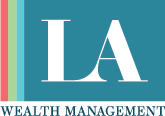HSA Benefits: A Quick Guide for Professionals
As a seasoned professional, you’re likely familiar with various financial tools that can help you maximize your wealth and plan for the future. However, one tool that often gets overlooked is the Health Savings Account (HSA). Whether you’re already contributing to one or considering opening an account, understanding the full potential of an HSA can help you make more informed financial decisions.
What is an HSA?
A Health Savings Account (HSA) is a tax-advantaged savings account designed specifically for people with high-deductible health plans (HDHPs). The funds you contribute to an HSA can be used to pay for qualified medical expenses, and the best part? These contributions are tax-deductible!
The Triple Tax Advantage
HSAs offer a unique triple tax advantage:
Tax-Deductible Contributions: Contributions to your HSA reduce your taxable income, which can be particularly beneficial for those in higher tax brackets.
Tax-Free Growth: The money in your HSA can be invested, and any interest or investment gains grow tax-free.
Tax-Free Withdrawals: Withdrawals used for qualified medical expenses are also tax-free, making this a highly efficient way to cover healthcare costs.
Flexibility and Control
Unlike Flexible Spending Accounts (FSAs), which have a "use it or lose it" policy, your HSA balance rolls over year after year. This means you can save for future healthcare needs, including those in retirement. After age 65, you can even use HSA funds for non-medical expenses without penalty—though you will need to pay regular income tax on those withdrawals.
Maximizing Your HSA
To fully take advantage of your HSA, consider contributing the maximum allowable amount each year. For 2024, the limits are $4,150 for individuals and $8,300 for families, with an additional $1,000 catch-up contribution if you’re 55 or older.
Additionally, if you don’t need the funds immediately for medical expenses, consider investing your HSA balance in mutual funds, ETFs, or other investment vehicles. This strategy can help grow your savings even further, providing a robust financial cushion for future healthcare costs.
The Bottom Line
For high-earning professionals, an HSA is more than just a savings account—it’s a powerful tool for tax savings, long-term wealth building, and securing your financial future. By maximizing your contributions and investing wisely, you can ensure that your HSA works as hard as you do.
Remember, your health and your finances are both investments worth protecting. An HSA might just be the key to balancing both with confidence.
Disclosure: Information provided should not be considered as tax advice from GWN Securities, Inc. or it's representatives. Please consult with your tax professional.


